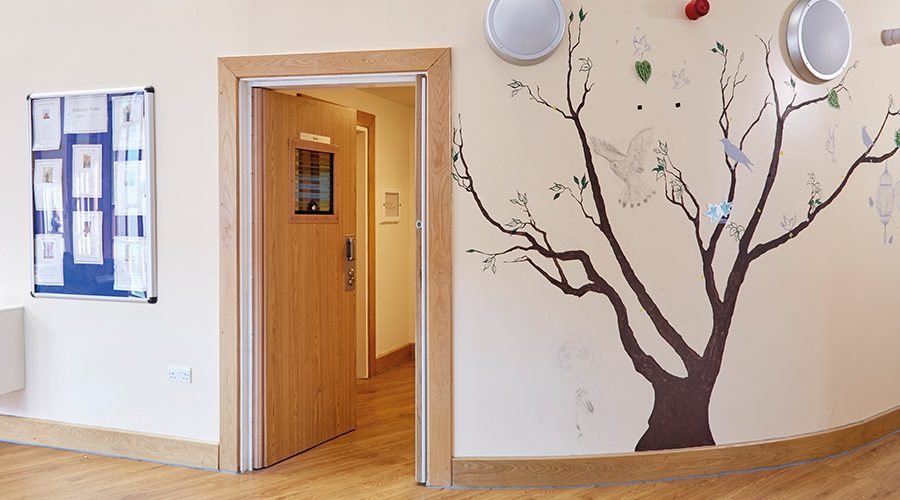Phil Barsby, Business Development Director at Intastop, a leader in providing solutions and products to address anti-ligature needs, explains the priority of patient safety in health establishments and NHS Trusts across the country.
Intastop
Never before has the nation’s mental health been so prevalent but as public awareness increases it is perhaps the behind the scenes aspect of mental health in the UK where there is most to be done. The Mental Health Foundation’s ‘Surviving or Thriving?’ survey found that, nearly two thirds of people (65%) in England, Scotland and Wales say they have experienced a mental health problem.
So, whilst awareness is increasing and social stigma decreasing, it seems that there will be an inevitable rise in the levels of care that are needed as more people seek support and appropriate medical care.
Considerations?
Recent statistics also show that 1 in 6 people will have had a common mental health issue and that 1 in 5 adults will have thought about taking their life at some point. Those with a mental health issue are more likely to consider suicide and this is particularly apparent for inpatients. Indeed, NHS figures show that the number of deaths annually among mental health patients in England rose by 21% over the period of 2013-2016, from 1412 to 1713. Inpatient hanging is cited as a major issue in mental health care and remains at the top of the agenda for healthcare trusts across the UK. Thus, there is an ever-present responsibility for care providers to remove this possibility wherever possible for patients under their care.

What has been done?
In relation to inpatient hangings, in the not too distant past, drastic action was taken to amend the doors themselves. It was not uncommon to see doors being completely removed which failed to stop noise and odours from transferring, compromised privacy and posed a security issue, indeed another preventative measure was for the door to have a sloped top to prevent the use of a ligature.
Neither solutions are ideal for providing the best healthcare and privacy for the patients. Where the aim of such care was to help them recover and address the issues they were experiencing, an alternative solution was developed and launched by UK-based Intastop. The Door Top Alarm, which has since revolutionised the use of doors in the mental health sector and, has returned a sense of dignity and privacy for patients and enhanced the ability of staff to provide a safe environment.
This tamper-proof system, which can be retro-fitted to existing doors with ease, works by a discrete sensory pad being installed at the top of a standard door and, should a weight be applied, it will alert staff via a preferred method such as an audible alarm, visible light, staff indicator panel or via a pager or main computer. The device connects via the main power and is also compatible with most staff-attack systems.
Protecting people
Additional anti-ligature products have been developed to also help reduce self-harm within healthcare establishments. The Shrouded Double Swing Continuous Geared Hinge and Removable Door Stop also by Intastop, together with the Door Top Alarm, create a robust anti-barricade door package thereby increasing patient privacy and patient and staff safety where installed. This anti-barricade package can provide swift opening in emergency situations and has been specifically developed for mental health units in line with the national strategy for suicide prevention.
Future care
As long as a nation we continue to talk about mental health, provide the right care and building infrastructure to support those with the most severe needs and work together to develop cohesive care, the future for our mental health looks set to make significant improvements in the years ahead.






